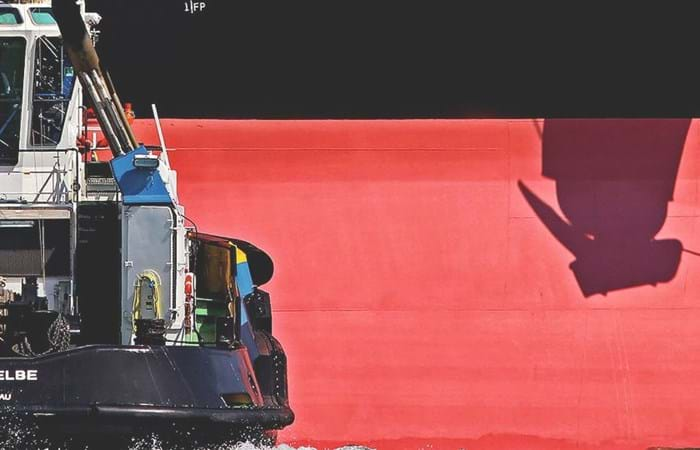The Meet the Buyer sessions held two years ago with 16 of our strategic suppliers have given rise to concrete chain initiatives in the area of cleaner fuels. Together with our suppliers we conduct constant research into the technical feasibility of using cleaner and more efficient fuels on our equipment. Boskalis makes targeted investments in this research and shares experiences with our clients to broaden the economic applicability.
Dilemma
The use of environmentally friendly fuels tends to produce particularly good results in stationary situations. This presents an immediate dilemma for Boskalis: most of our equipment is not involved in stationary processes; irregular fluctuations in load and substantial peak loads are inherent to the work that we do. This makes research into the technical applicability of these fuels imperative. Where environmentally friendly fuels are more costly than fossil fuels economic feasibility also comes into play. Once client appreciation of better environmental performance translates into acceptance of these costs the application becomes economically viable as well. Which is why we are keen to share the knowledge we glean from our tests with clients. In regions where there is less client appreciation in this area we follow international legislation and regulations in addition to our own policy as set out in our ISO 14001 management program. Our research program enables rapid implementation of environmentally friendly fuels as soon as international legislation and regulations demand it.
GTL pilot
In 2013 we became the first shipping company to use GTL in the propulsion system of a tugboat, the Smit Elbe, which operates in the port of Rotterdam. The purpose of the pilot is to gain on-board experience of this clean fuel and to measure the extent of the reduction in emissions. We expect to be able to achieve a sizeable reduction in emissions without having to adapt the engines. This could help towards achieving the Port of Rotterdam’s emission reduction targets. The pilot was launched in late 2013 and will last just under a year.
Biodiesel pilot
The partnership with KLM Royal Dutch Airlines and SkyNRG is another initiative to have arisen from a ‘Meet the Buyer’ session. SkyNRG wants to give a major boost to the production and availability of biofuels for the aviation industry. The challenge for SkyNRG lies in the fact that the economic feasibility of the fuel - consisting of 70% diesel and 30% frying fat - stands or falls with sufficient sales. KLM only uses a small part of the available volume, which is why SkyNRG is looking to broaden the market to enable biofuels to compete with traditional fuels. Joost Rijnsdorp, Boskalis’ manager Procurement & Logistics: 'Boskalis employees clock up a large number of flight hours traveling to offices and projects in other countries. KLM is our preferred carrier and so the link to this chain initiative was swiftly made. With regard to KLM we could also have opted to offset our environmental impact but prefer to participate in a structural solution. We have agreed to conduct a pilot involving a number of our trucks for about a year. This will entail purchasing 250,000 litres of biofuel. In this pilot too we will concentrate mainly on the technical performance of the equipment. If the pilot proves successful, it may be rolled out on one of our ships.' SkyNRG CEO Dirk Kronemeijer said: 'Boskalis is supporting us in enhancing our growing track record in this sustainable diesel fuel. By expanding our know-how and creating more critical scale we will be better able to realize our objective and compete head on with fossil fuels in terms of pricing.'
